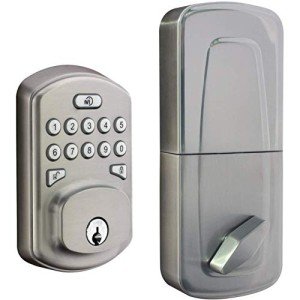The Ultimate Guide to Buying LED Lights in the UK
Over the last few years, LED lights have actually risen in appeal due to their energy efficiency, longevity, and flexibility. As the UK moves towards more sustainable energy practices, numerous homeowners and businesses are making the switch from traditional incandescent and fluorescent bulbs to LED lighting. This post aims to guide readers through the process of acquiring LED lights in the UK, highlighting essential factors to consider, advantages, and regularly asked questions.
Comprehending LED Lighting
What are LED lights?LED mean Light Emitting Diode. Unlike traditional bulbs, LED lights create light through a semiconductor. This technology is not only more energy-efficient however also produces less heat, minimizing electricity costs in the long run.
Advantages of LED Lights
Energy Efficiency
- LED lights consume to 80% less electricity than traditional incandescent bulbs.
- They transform almost all the energy they take in into light rather than heat.
Durability
- Average lifespan of LED lights is roughly 15,000 to 50,000 hours, significantly lasting longer than traditional bulbs.
Environmental Impact
- Minimized energy usage reduces carbon footprints.
- LEDs include no hazardous products like mercury, making them environmentally friendly.
Range and Versatility
- Available in various shapes, colors, and brightness levels appropriate for different applications.
Instantaneous Lighting and Dimming Capabilities
- LEDs light up quickly and can be dimmed for particular lighting requirements without flickering.
Key Factors to Consider When Buying LED Lights
When searching for LED lights in the UK, it's essential to consider various elements to ensure you buy the ideal item for your requirements.
1. Brightness Level
Brightness in LED lights is measured in lumens. Greater lumens indicate brighter lighting. Here's a quick recommendation:
| Wattage (Traditional Bulb) | Lumens (LED Equivalent) |
|---|---|
| 40W | 450 |
| 60W | 800 |
| 100W | 1600 |
2. Color Temperature
LEDs are available in various color temperatures, measured in Kelvin (K). Here's a breakdown of color temperatures:
- Warm White (2700K - 3000K): Ideal for homes, produces a comfortable environment.
- Cool White (4000K - 4500K): Suitable for work areas, offering a tidy, bright light.
- Daylight (5000K - 6500K): Mimics natural daylight, best for outdoor usage or specific job lighting.
3. Dimmability
Not all LED lights are dimmable. If you want the versatility to change brightness levels, make sure that the LEDs you pick work with dimmer switches.
4. Component Compatibility
Consider the type of fixtures in which you'll be placing the LEDs. Common fitting types in the UK include:
- BAYONET (B22): Commonly utilized in families.
- Edison Screw (E27, E14): Popular for both decorative and general lighting.
- GU10: Often utilized for spotlights and recessed lighting.
5. Energy Rating
Check the energy score of the LED light. Many LED bulbs will be appreciated (A+ or higher) for energy effectiveness.
6. Lifespan & & Warranty Buying quality LED lights typically features warranties varying from 1 to 5 years. A longer guarantee may indicate a more durable item.
Where to Buy LED Lights in the UK
LED lights are extensively readily available throughout different platforms, including:
Physical Stores:
- DIY and home enhancement stores like B&Q, Homebase, and Wickes.
- Grocery stores such as Tesco and Sainsbury's.
Online Retailers:
- E-commerce giants like Amazon and eBay.
- Specialized lighting sites like LED Hut or Lights4Fun.
Local Electrical Suppliers:
- Independent electric supply shops typically provide professional guidance.
Recommended Brands
When purchasing LED lights, consider trusted brands known for their quality and development, such as:
- Philips
- Osram
- Sylvania
- GE Lighting
- IKEA
Regularly Asked Questions (FAQs)
1. Are LED lights actually worth the financial investment?Absolutely. While LED lights may have a higher upfront cost compared to traditional bulbs, their energy effectiveness and long life expectancy suggest they will conserve you money on energy bills with time.
2. Can I utilize LED lights in my existing fixtures?Yes, as long as you pick bulbs compatible with your fixtures (BAYONET, Edison Screw, GU10, etc), you can quickly replace traditional bulbs with LEDs.
3. Why are click through the following internet site than others?Price distinctions can be credited to brand name track record, innovation (such as smart features), energy effectiveness rankings, and warranty durations.
4. Do LED lights release hazardous radiation?No, LED lights do not release ultraviolet or infrared radiation and are considered safe for home usage.
5. Can I recycle LED bulbs?Yes, lots of local councils have recycling programs for LED bulbs. Check regional standards for disposal instructions.
Buying LED lights in the UK is a smart choice for those wanting to save energy, minimize costs, and improve their lighting solutions. By thinking about aspects such as brightness, color temperature, fixture compatibility, and credible brands, buyers can confidently make notified decisions. Accepting LED innovation is not just advantageous for individual homes and services, but it also adds to a more sustainable future for the environment. Whether you head to a regional store or browse online, the transition to LED lighting is an action towards a brighter, cleaner world.

